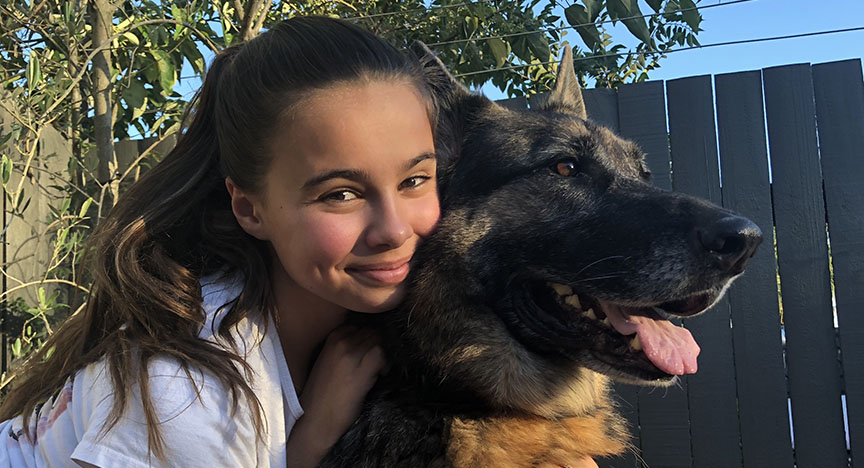
Twelve-year-old Kenmore Hills local, Isabel, was diagnosed with dominant dystrophic epidermolysis bullosa (EB) at the age of 10. EB is a genetic skin condition caused by a mutated gene, which makes skin very fragile and creates blistering, scarring, bleeding, bruises and scabs.
“We knew EB was common in our family but we never had a specific diagnosis or explanation of how the condition came to be or what it exactly meant in relation to our skin. Isabel was only formally diagnosed after a flare-up in her condition that lead to blisters and hives all over her body,” Isabel’s mum, Cathy said.
Although Isabel has a milder version of the condition which mostly affects her hands, legs and feet, she still contends with long-lasting scars from minor injuries, easily-damaged skin and extended healing time for wounds. It also affects her toes and fingernails and can make them extremely damaged and breakable, meaning most of her toenails have fallen off.
“Because of our family history with EB it is not a new problem for us in the way it is for many other families who severely struggle with it. That said, there are definitely challenges that arise like allergies to most soaps, chlorines and flare-ups with extreme heat,” said Cathy.
While there is no cure for EB, Isabel receives wound care at Queensland Children’s Hospital and receives the same kind of dressings as burns victims. To ease the discomfort of the heat-related flare-ups, she stays in the air-conditioning and wears loose cotton clothes during hotter months.
Isabel said people could sometimes be insensitive about her condition.
“A girl at school walked up to me and mockingly screamed at my feet and legs. She then proceeded to tell all her friends to look at my feet to see how hideous they were – it was extremely embarrassing and made me feel really self-conscious,” she said.
“EB doesn’t just affect the outside of a person. People often think that because people suffer with a condition it doesn’t affect them emotionally at all because they are used to it, but people’s comments and curiosities can really hurt.
Isabel credits her friends with helping her keep a positive attitude:
“My friends are really supportive of my condition and don’t pay much attention to it. That makes me feel a lot better, as I know a lot of people would appreciate, it feels nice to blend in and not be noticed from time to time.”